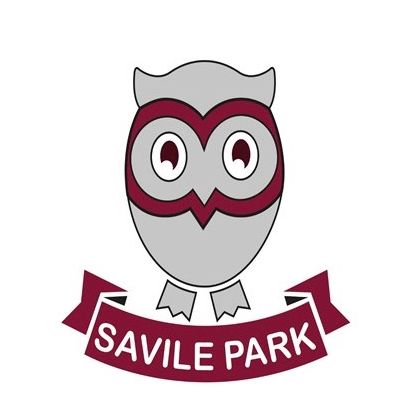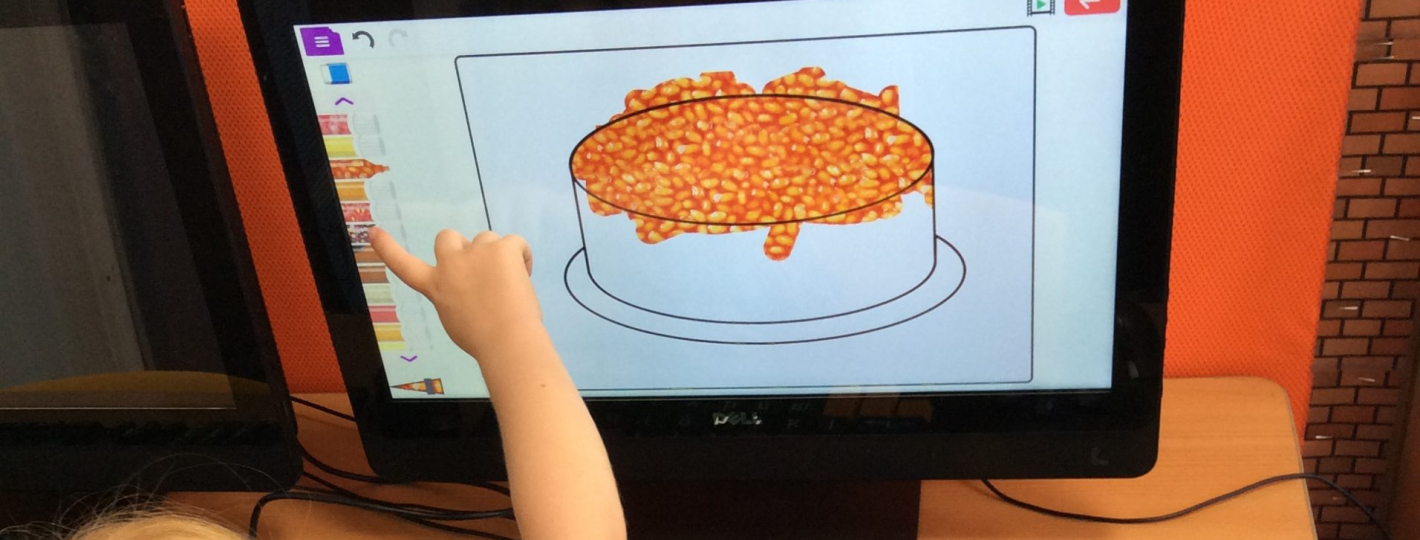Robins and Wrens
Our Teachers are: Mrs Holmes and Miss Adams
Our Teaching Assistants are: Miss Habib, Miss Oakes, Mrs Tabassum, Mrs Manshah and Mrs Akhtar
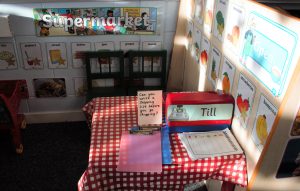
The Reception class has its own entrance, cloakroom, toilets and sinks. It also has an enclosed outside play area which children have regular access to throughout the day.
Within each classroom the children have access to nine areas: Role Play, Writing, Reading, Sand, Creative, Construction, Numeracy, ICT and Continuous Snack, these reflect the Areas of Learning defined in the Early Years Foundation Stage Framework – providing opportunities for learning through a wide range of activities.
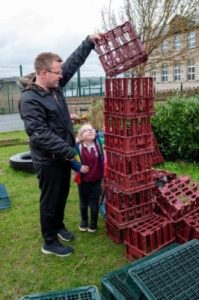
At Savile Park we encourage children to become independent and curious learners and our environment is structured to reflect children’s varying interests and individual learning styles. We are also very fortunate to have access to a fantastic outdoor classroom. We place equal importance on the indoor and outdoor learning environments.
Learning through play underpins all of the EYFS and the framework is split into three “Prime” areas of learning and development:
Personal, Social and Emotional Development – Making relationships, Self-confidence and self-awareness and Managing feelings and behaviour.
Children are supported and encouraged in developing:
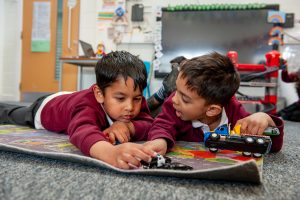
- co-operative play and taking turns. They take account of one another’s ideas about how to organise their activity. They show sensitivity to others’ needs and feelings, and form positive relationships.
- confidence to try new activities They will talk about their ideas, and will choose the resources they need for activities. They say when they do or don’t need help.
- awareness of feelings and behaviour, and its consequences, and know that some behaviour is unacceptable. They learn about following the rules and adjust their behaviour to different situations.
Physical Development – Moving and Handling and Health and Self Care.
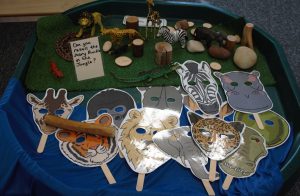
Children are provided with the resources and support to:
- Develop good control and co-ordination in large and small movements. They move confidently in a range of ways, safely negotiating space. They handle equipment and tools effectively, including pencils for writing.
- Find out about the importance for good health of physical exercise, and a healthy diet, and talk about ways to keep healthy and safe. They manage their own basic hygiene and personal needs successfully.
Communication and Language – Listening, Understanding and Speaking
Children are given the opportunities and support to:
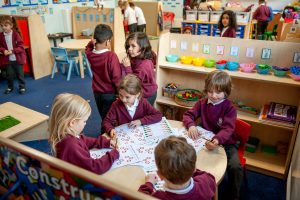
- listen attentively in a range of situations, responding to what they hear with relevant comments, questions or actions. They give their attention to what others say and respond appropriately.
- follow instructions involving several ideas or actions. They answer ‘how’ and ‘why’ questions about their experiences and in response to stories or events.
- express themselves effectively, showing awareness of listeners’ needs. They use past, present and future forms accurately. They develop their own narratives and explanations by connecting ideas or events.
There are also four “Specific” areas of learning and development:
Literacy – Reading and Writing
Children are taught to:
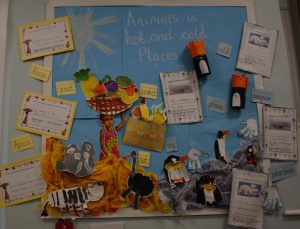
- read and understand simple sentences. They use phonic knowledge to decode regular words. They read some common irregular words. They demonstrate understanding when talking about what they have read.
- use their phonic knowledge to write words in ways which match their spoken sounds. They write some irregular common words. They write simple sentences which can be read by themselves and others. Some words are spelt correctly and others are phonetically plausible.
Mathematics – Number and Space, Shape and Measure
Children will be encouraged to develop the skills to:
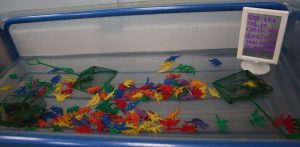
- count reliably with numbers from one to 10 or 20, placing them in order and saying which number is one more or one less. They will add and subtract two single-digit numbers and use different strategies to solve problems.
- use everyday language to talk about size, weight, capacity, position, distance, time and money.
- compare quantities and objects and to solve problems. They recognise, create and describe patterns, exploring characteristics of everyday objects and shapes and using mathematical language to describe them.
Understanding the World – People and Communities, The World and Technology
Children will be encouraged to develop an understanding of:
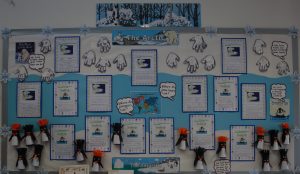
- past and present events in their own lives and in the lives of family members. They know that other children don’t always enjoy the same things, and are sensitive to this. They know about similarities and differences between themselves and others.
- similarities and differences in relation to places, objects, materials and living things. They talk about the features of their own immediate environment and how environments might vary from one another. They make observations of animals and plants and explain why some things occur, and talk about changes.
- a range of technology and how is used in places such as homes and schools. They select and use technology for particular purposes.
Creative Development – Exploring and Using Media and Materials and Being Imaginative
Children are provided with resources and opportunities to:
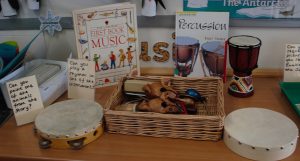
- sing songs, make music and dance, and experiment with ways of changing them. They safely use and explore a variety of materials, tools and techniques, experimenting with colour, design, texture, form and function.
- use what they have learnt about media and materials, thinking about uses and purposes. They represent their own ideas, thoughts and feelings through design and technology, art, music, dance, role play and stories.
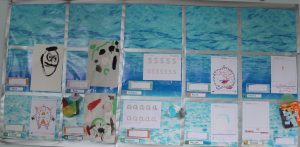
On-going formative assessment is at the heart of our practice. We observe children which allows staff to plan experiences and learning opportunities through a highly structured environment in order to deepen children’s understanding and drive their learning forward to the next stage.
Reception children learn through a play based curriculum where they are given the opportunity to talk, observe, plan, question, experiment, test, repeat, reflect and respond, independently, with peers or with adults.
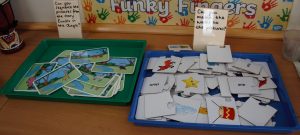
The EYFS provides children with the skills they need to progress onto Key Stage One which includes Year One and Year Two. The staff across these stages of development work closely together to ensure your child has the best possible experience of education right from the start.
All children at Savile Park leave the Early Years feeling inspired, unique and secure – socially, emotionally and academically.
